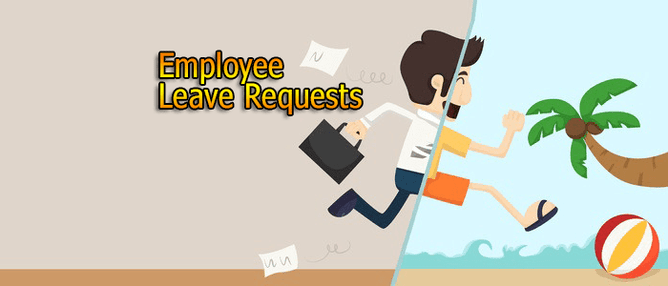Some types of holidays and leave may affect an employee's annual holidays.
Leave without pay
If an employee takes more than a week of unpaid leave at any point during the year:
the time required before the employee becomes entitled to annual holidays is extended by the amount of unpaid leave taken more than one week. For example, if an employee takes 2 weeks unpaid leave, they become entitled to annual holidays one week after the anniversary of their starting date, or
you can agree with the employee that taking the unpaid leave will not affect their annual holidays anniversary date, but their average weekly earnings calculation must be adjusted to reflect the number of whole or part weeks greater than one week that the employee was on unpaid leave. For example, if an employee takes 2 weeks unpaid leave during the year, you can agree that the anniversary date doesn’t change and the average weeks earnings for annual holidays pay is calculated based on a 51-week year, instead of 52 weeks.
Time off without pay while an employee is receiving ACC, on parental leave, or on leave for defence force volunteers protected voluntary military service, does not affect their anniversary date for annual holiday entitlement.
Sick, bereavement and family violence leave
If an employee is about to take annual holidays but before they do, they (or their spouse, partner or dependant) become sick or suffer a bereavement or are affected by family violence, you must allow them to take sick leave or bereavement leave or family violence leave for the relevant period if they are entitled to it.
If an employee is already taking annual holidays and:
they (or their spouse, partner or dependant) become sick, the employee can take sick leave instead of annual holidays for the relevant period, but only if you agree
they suffer a bereavement, you must allow them to take bereavement leave instead of annual holidays for the relevant period
they are affected by family violence, you must allow them to take family violence leave instead of annual holidays for the relevant period.
If an employee has a period off work on ACC, their annual holiday entitlement is calculated as if they were still working.
Public holidays
If an employee is taking annual holidays, during which a public holiday falls on a day they would otherwise have been working, they are entitled to take that day as a public holiday instead of using their annual holidays.
Parental leave
Employees who are on parental leave are still in ‘continuous service’ and entitled to at least four weeks of annual holidays on the anniversary of their employment start date.
Pay for annual holidays that an employee becomes entitled to during parental leave, or in the 12 months after they return from parental leave, is calculated based on average weekly earnings over the 12 months to the end of the last pay period before the annual holidays is taken.
Approving and declining annual holiday requests
Annual holidays (also called ‘annual leave’) can be taken at any time agreed to by you and an employee. You must allow your employees to:
take annual holidays within 12 months of the date on which they become entitled to them.
take at least 2 of their 4 weeks of annual holidays at once, if they wish to.
What you can and cannot do
As an employer, you can:
choose whether or not to agree to an employee taking unpaid leave, or annual holidays in advance if they do not have annual holidays they are entitled to use
require employees, in specific circumstances, to take annual holidays
cancel annual holidays that have already been approved, if you have a good reason, or the employee asks you to.
You cannot unreasonably refuse an employee who wants to take annual holidays they're entitled to.
Employer rights and responsibilities
Requests to take annual holidays in advance
Employees can ask to take annual holidays before they are entitled to them (‘in advance’), but you do not have to agree to the request unless there is a relevant clause in their employment agreement
Employees can ask for annual holidays in advance if they:
have not completed 12 months of continuous service, or
have used all of their current entitlement.
When you agree to an employee taking annual holidays in advance, you should make sure they agree in writing that if they leave your employment before, they become entitled to annual holidays, you can recover the overpayment from their final pay.
Requiring employees to take annual holidays
You can only require employees to take annual holidays if:
you cannot reach agreement about when annual holidays (that the employee is entitled to) will be taken, and you give the employee at least 14 days' notice, or
you regularly close down for a certain period every year (for example, over Christmas) and give the employee at least 14 days’ notice.
An employer cannot require an employee to take annual holidays in advance, except when there is an annual closedown.
Annual closedowns and holidays
Cancelling annual holidays
You or your employee may wish to cancel annual holidays that have already been arranged.
You do not have to agree to a cancellation request – and your employee does not have to agree if you ask them to cancel annual holidays.
Both parties should negotiate in good faith – for example, you could agree:
to postpone the annual holidays to another time
to reduce the number of annual holidays taken.
Source: www.employment.govt.nz

